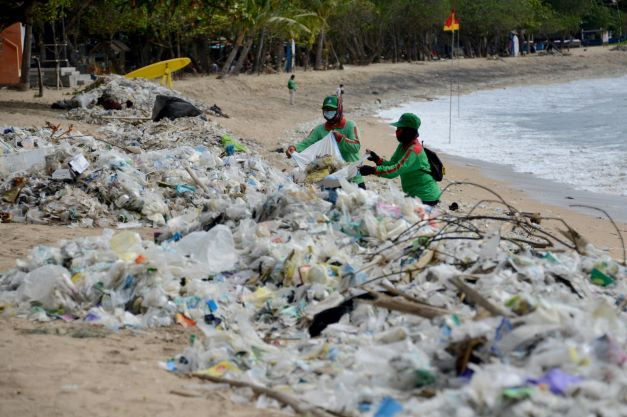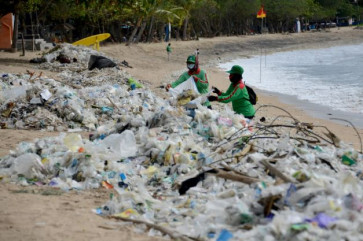Popular Reads
Top Results
Can't find what you're looking for?
View all search resultsPopular Reads
Top Results
Can't find what you're looking for?
View all search resultsOcean plastic: Has the tide been turned?
Instead of questioning why the plastics were even there in the ocean in the first place, the public was “driven” to believe that as a notorious ocean polluter, plastic products were “branded” as the common enemy.
Change text size
Gift Premium Articles
to Anyone
A
few months ago, Ocean Conservancy, a United States-based nongovernmental organization, apologized for publishing a report titled “Stemming the Tide” and subsequently retracted it from its website.
Among other things, the retracted report created a mis-framing and false narrative about countries to blame for ocean plastic pollution, where Indonesia was named the world’s second-largest contributor to the pollution.
Ever since its publication in 2015, this narrative has caused countless heated debates over plastic consumption and plastic waste in Indonesia. The government was bombarded with numerous negative news items and fear mongering related to plastic-pollution impacts to the point that it shifted public opinion on plastic products.
Instead of questioning why the plastics were even there in the ocean in the first place, the public was “driven” to believe that as a notorious ocean polluter, plastic products were “branded” as the common enemy of our environmental sustainability, and thus their existence and circulation should be avoided at all costs.
In the midst of these debates, in 2018, the government enforced a presidential decree on marine litter, which showcases the national roadmap to tackle this issue.
Having been working at a solid-waste industry for nearly two decades, I have been expressing my standpoint on this issue on numerous occasions. I believe that all types of waste are equally important to manage, and we should not lose focus on how to comprehensively address waste-management issues, of which the key problem lies in the disconnected waste-management system, instead of any particular type of waste.
However, the framing at the global level has succeeded tremendously in leveraging the plastic-pollution issue and overlooking the criticality of other solid-waste issues.



















